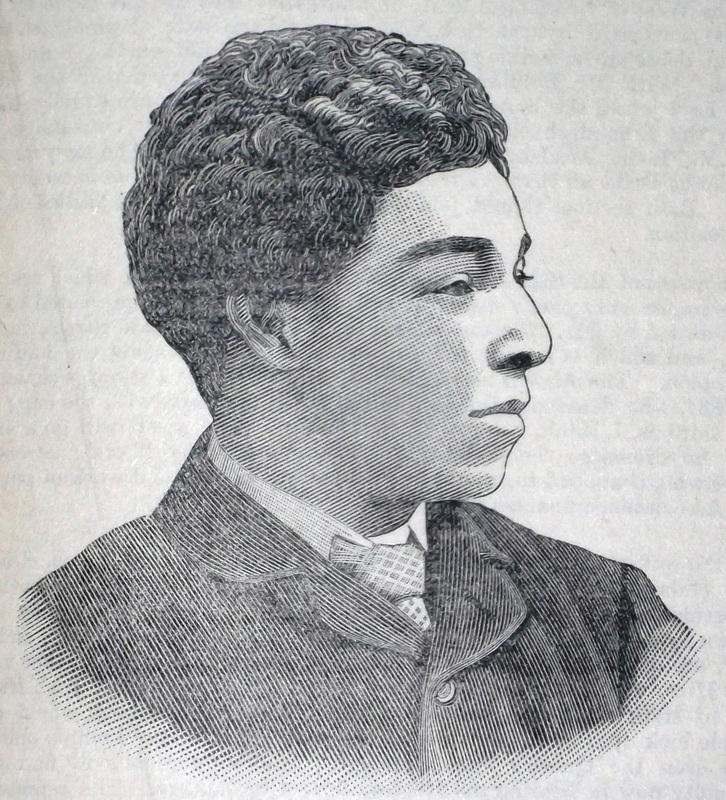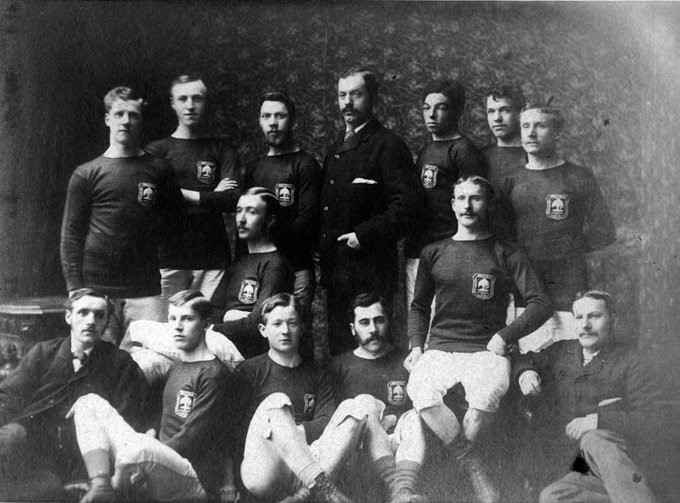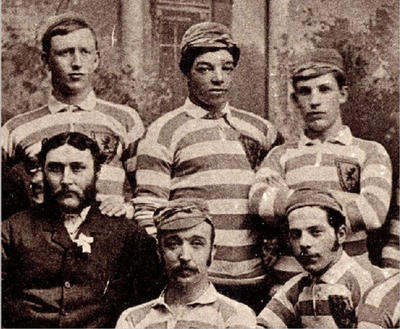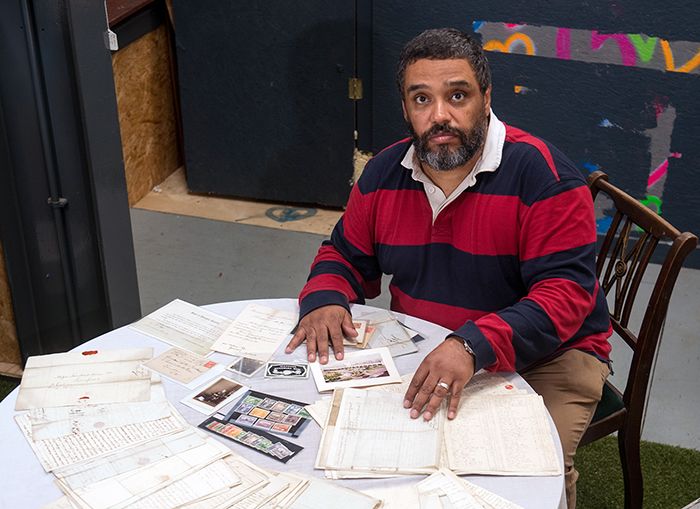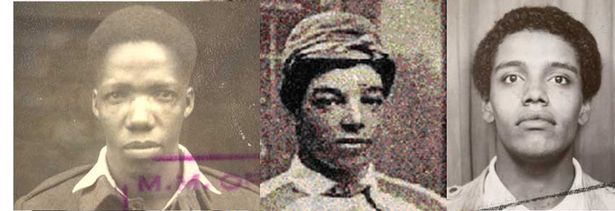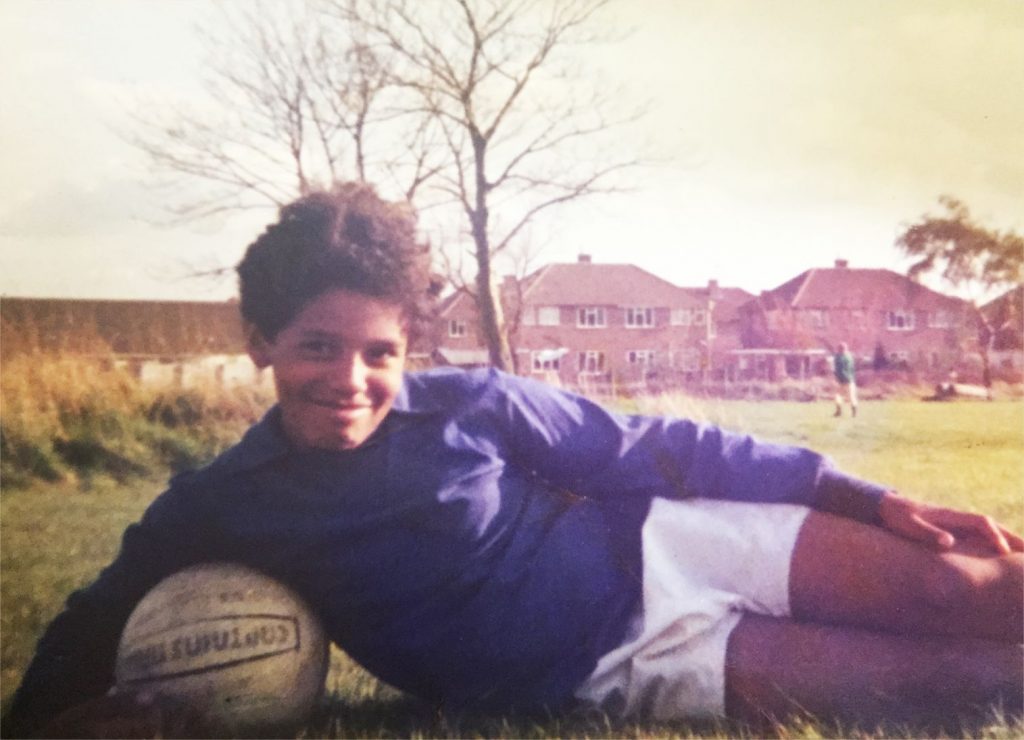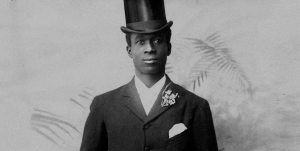24 May 1856 – 8 March 1921
Scotland’s first international Black football player.
Young Andrew
Born on 18 May 1857, in Georgetown Demerara, British Guiana (now Guyana). His father was Peter Miller Watson.
Peter was a wealthy sugar plantation owner and his mother was a local Guyanese woman called Hannah Rose.
Britain
Andrew moved to Britain with his father and older sister Annetta around the age of 5 or 6 leaving his mother behind in Guyana.
His father died in 1869, Andrew and his sister Annetta inherited an estate worth £35,000 – in today’s money a cool £3mil.
This resulted in him being financially independent for life and able to devote more time to football. This was an advantageous situation given that football was wholly amateur until 1893.
Glasgow
Andrew enrolled at the University of Glasgow to study engineering, natural philosophy, and mathematics.
He never finished his studies and he set up a wholesale warehouse business in 1877 – Watson, Miller, and Baird in Glasgow.
Andrew also married that same year to Jessie Nimmo Armour and had two children with her.
Football
He juggled his life between being a wholesale business owner and a football player easily; in 1874 he signed for the Glasgow-based Maxwell.
Shortly after he moved to Govan-based Parkgrove FC where he was also the match secretary.
Andrew’s wealth gave him privilege and access that enabled him to cross barriers that his race would have never afforded.
In reports of him playing football – his race is never mentioned, a rare occurrence given the 19th century’s racist attitudes at the time.
In 1880, he was invited to play for the leading Scottish club Queen’s Park where he was also the club secretary.
Soon Andrew caught the attention of leading figures in English football, and moved to England to play for the Slough-based Swifts FC.
Tragedy
Tragedy struck when his wife Jessie died unfortunately in 1882, so Andrew returned to Glasgow with his two young children, they were cared for by Jessie’s family.
Andrew divided his time between Glasgow and London, playing for Queen’s Park and Slough Swifts.
As he no longer lived in Scotland full time he was ineligible to play internationally again.
He won further Scottish cups with Queen’s Park in 1886 and 1887. Andrew also remarried in 1887 to Eliza Kate Tyler five years after the death of his first wife.
Liverpool
After Andrew relocated to Liverpool with Eliza he played for Bootle FC. The couple had a son, Henry, in 1888, and a daughter, Phyllis in 1891.
In retirement, Watson returned to London, dying at 88 Forest Road, Kew in 1921 at the age of 64, with his death going largely unnoticed by the football world.
Scottish football writer Stuart Cosgrove watched a 2002 documentary about Black footballers. He noticed the resemblance between Andrew Watson and British poet and writer Malik Al Nasir.
Malik Al Nasir
Malik was born Mark Watson but changed his name to Malik Al Nasir when he became Muslim in 1992.
In an interview with The Guardian Malik said
“There were illustrations in the athletics journals of the 1880s and 1890s which showed pictures of Watson and early photographs. He looked identical to me.”
“We’ve got the same family name, we come from the same place in Demerara in Guyana, we have to be related.”
This began an eighteen-year search into his family’s history, and it brought mixed emotions.
On one hand, he was thrilled to be related to Britain’s first Black international football player but it stung to know that he was also connected to slavery.
“I managed to track down my long-lost family and my cousins were actually living on land passed directly down from Andrew Watson’s uncle, William Robertson Watson”. Malik said.
Nevertheless, Andrew Watson broke so many barriers and excelled during a time where it was completely unheard of.
We are Adeptales, salute you Andrew Watson.


